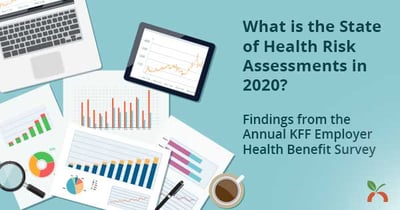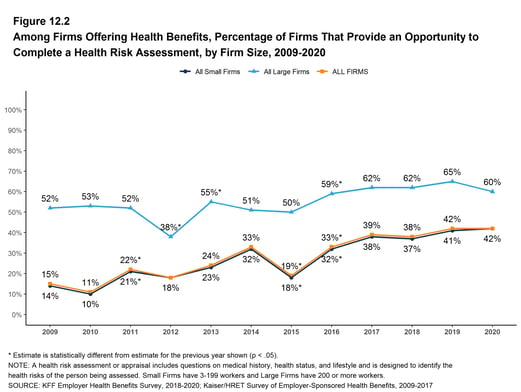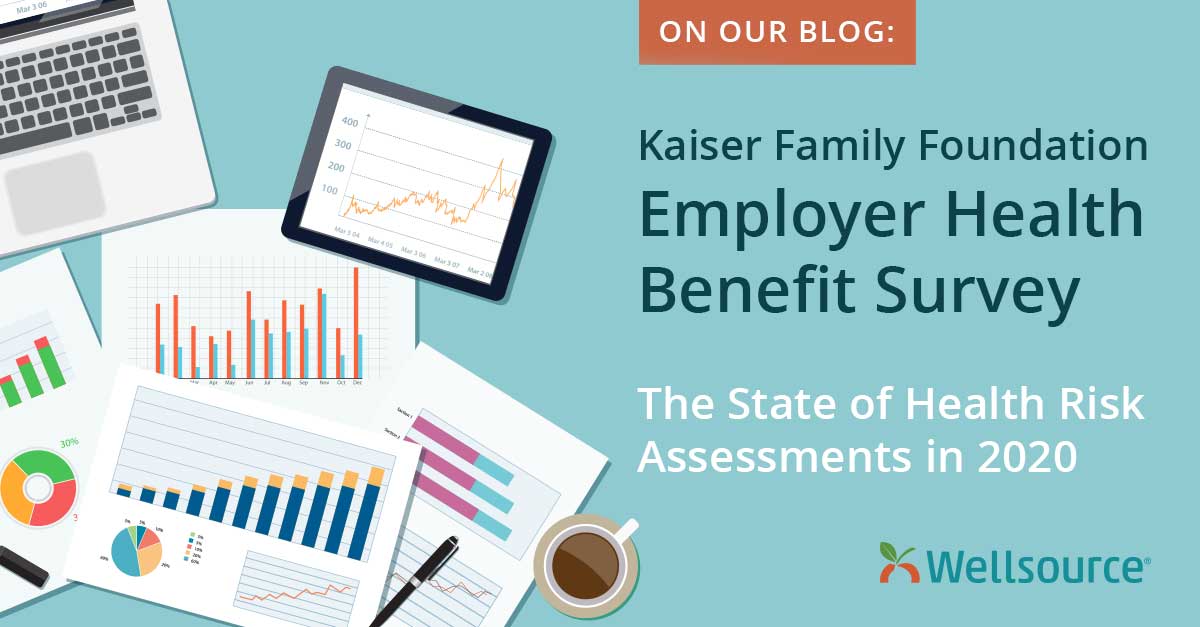Every year the Kaiser Family Foundation releases an annual Employer Health Benefits Survey, which looks at trends in employer-sponsored health coverage. The 2020 Survey was released earlier this month and includes more than 1,700 interviews with non-federal and private firms between mid-January of 2020 through July of this year.
Given the expansive breadth of the survey’s scope, it’s not surprising that the major headlines written about the survey findings tend to focus on the 4% increase in annual premiums this year—nearly $7,500 for single coverage and $21,500 for family coverage.
The other biggest news coming out of the report? The expansion of virtual care options heading into 2021. More than half of large employers will be offering more virtual care options next year. This could signal that the COVID-19 pandemic has changed how Americans seek medical care, even in the earliest months of this year when the survey was taking place and the full effects of the pandemic had not yet been felt.
But tucked deeper into the report’s findings are some interesting figures on the prevalence and use of health risk assessments (HRAs) (here’s a link to that section of the report).
Health Risk Assessment Insights from the Kaiser Family Foundation 2020 Employer Health Benefits Survey
How common are health risk assessments at work?
According to this report, 42% of small firms and 60% of large firms that offer health benefits provide their workers an opportunity to complete a health risk assessment—not a significant difference from the 2019 survey findings. Looking back 10 years to the 2010 report, it’s interesting to note the growth in small firms offering this benefit:

Figure above is borrowed from the KFF 2020 report, click here to view it in its original format.
Ten years ago, only 10% of small firms offered their employees the chance to take an HRA. That number has more than quadrupled among small firms, while large firms offering the same benefit have seen a more measured growth over that same time period.
How many employees actually complete a Health Risk Assessment?
Among large firms, 44% of workers complete the HRA, but the survey noted that the data held a lot of variation in establishing these averages: at 8% of firms, less than 10% of workers completed the screening, while 5% of firms saw more than 90% complete it. That’s a huge divide and could speak more to the culture of health at the organization and the types of programs promoting and incentivizing the HRA than the success of the standalone assessment.
How common are incentives for completing an Health Risk Assessment?
Another interesting finding in the survey was around the use of incentives to encourage workers to complete an HRA. Among large firms that offer health benefits and include an HRA in their program, over half offer an incentive.
Anecdotally, at Wellsource we’ve noticed that clients who offer some form of incentive for HRA participation typically see higher engagement rates than those who do not. Of course you will want to do your own due diligence when creating an incentive program and ensure that it meets EEOC regulations.
Trends We’re Watching in 2021
Let’s be honest, 2020 wasn’t exactly a year anyone could have planned for—and we at Wellsource are heading into 2021 ready to continue adapting to whatever may come next. But there are some interesting trends brought forward by the COVID-19 pandemic that we will be following closely. Here are a few top-of-mind metrics we’re watching:
- Increased prevalence and promotion of telehealth programs. Wellsource CEO Chris McReynolds recently wrote about the role of telehealth in gathering data to meet the needs of a remote population.
- Changes in employee assistance programs and total-wellness offerings to address the effects of the epidemic. Here are some tips on working remotely and working wellness initiatives.
- Growth in wellness and health promotion programs, which include health education resources and other programs to help workers engage in healthy lifestyles and reduce health risks. Here’s a roundup of resources for population health professionals navigating COVID-19, including a free resource center of curated articles and wellness self-help materials for HRA participants.
Considering how to scale your wellness programs to best serve your population? Start with our Ultimate Guide to HRAs:








